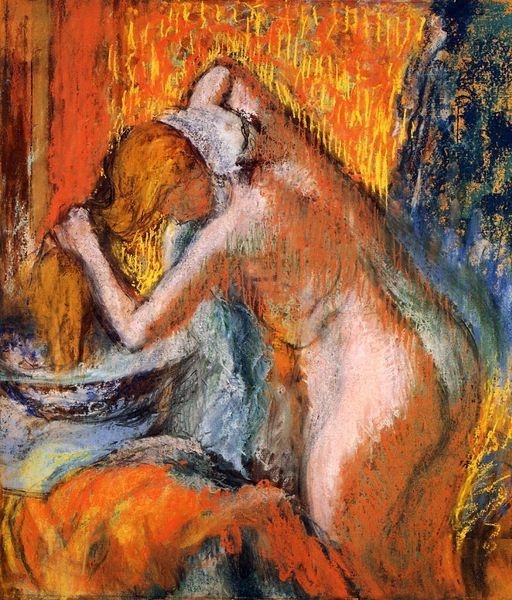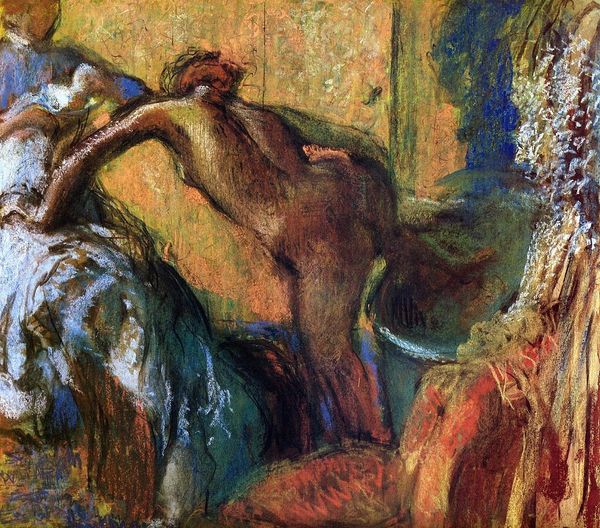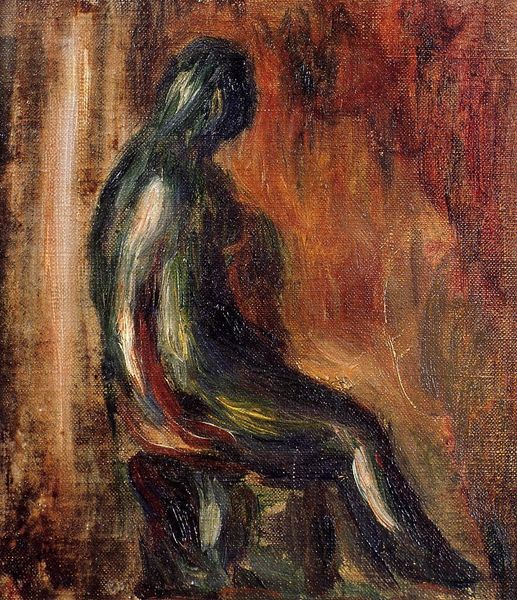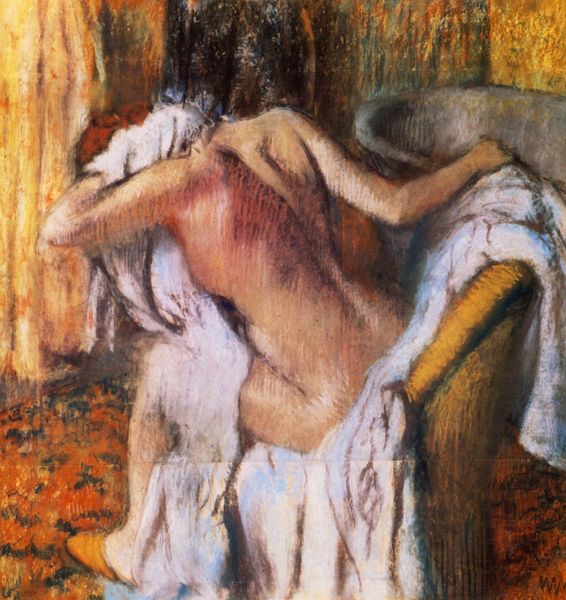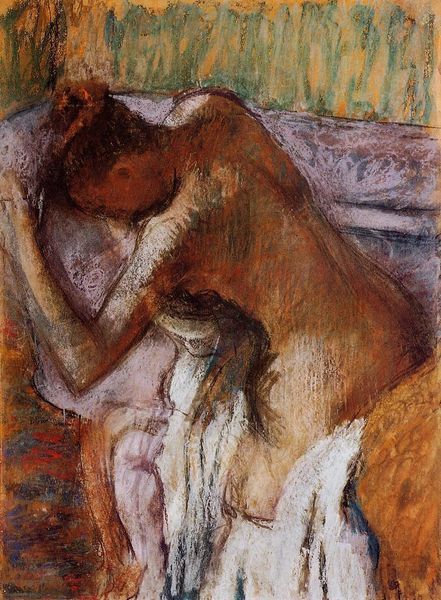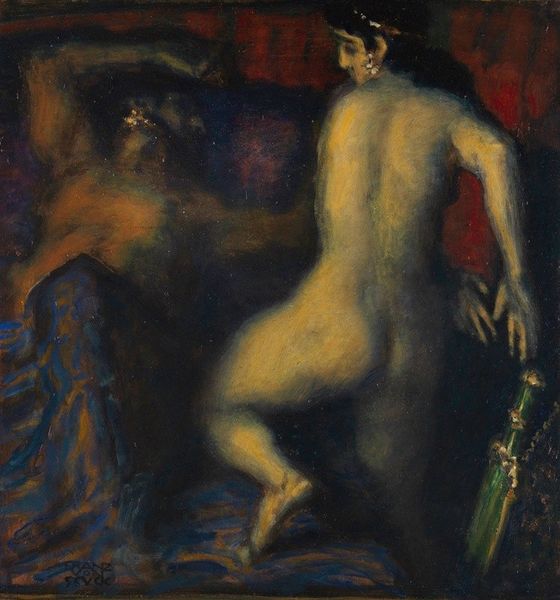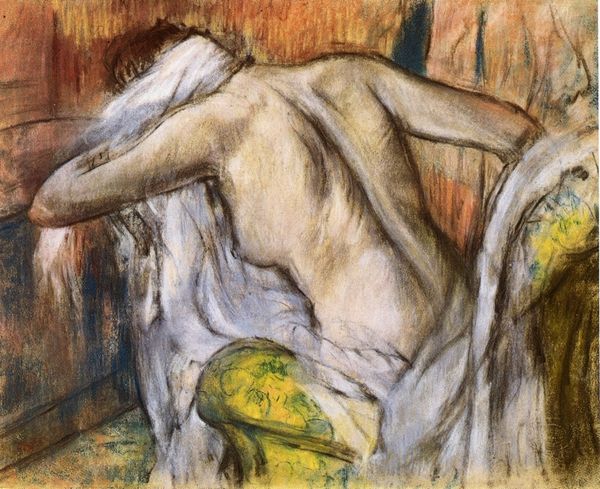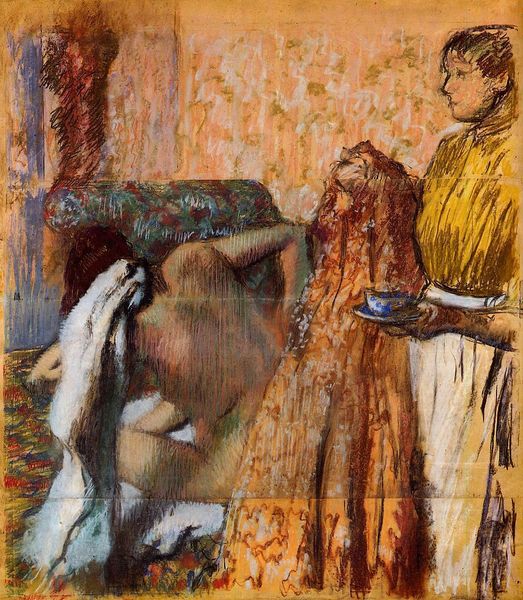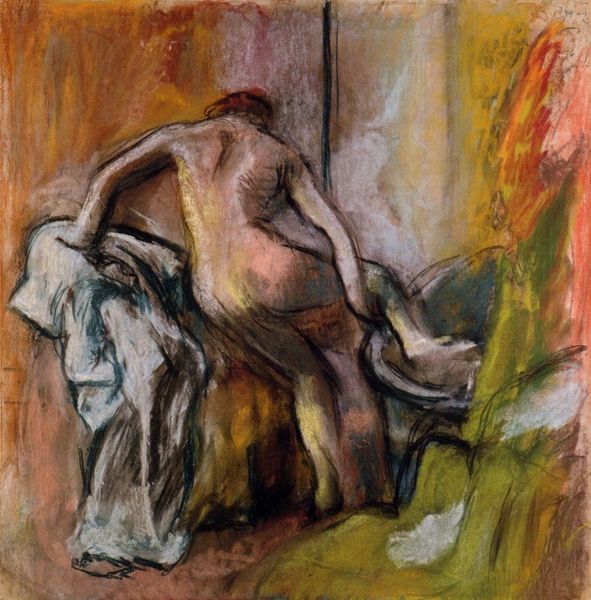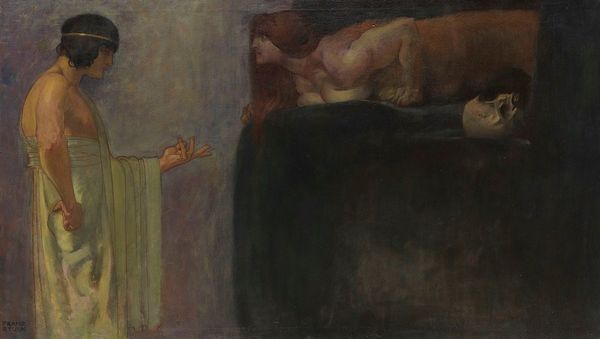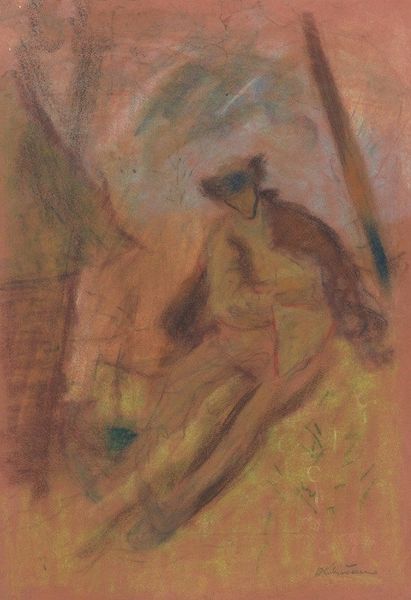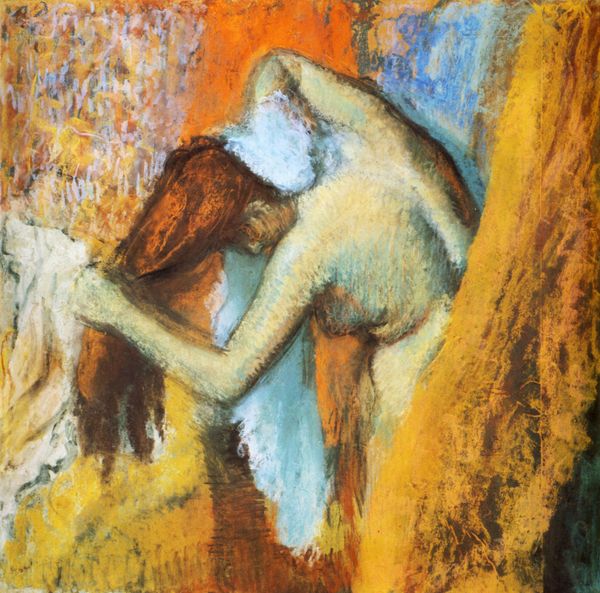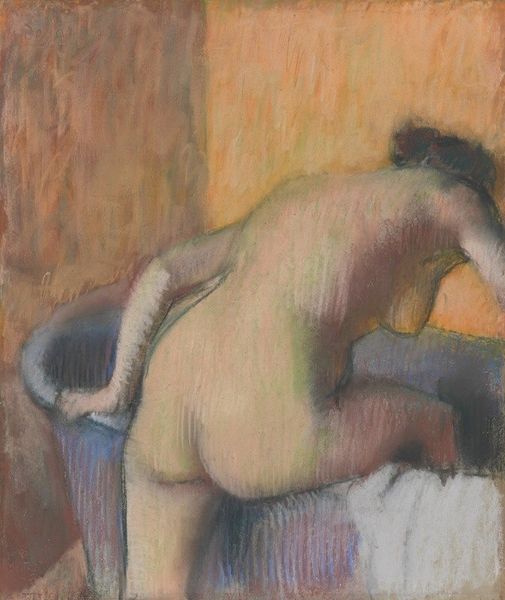
painting, pastel
#
impressionistic
#
painting
#
impressionism
#
figuration
#
possibly oil pastel
#
neo expressionist
#
intimism
#
france
#
painting painterly
#
pastel
#
nude
Dimensions: 33 x 38 cm
Copyright: Public domain
Curator: Look at how Degas captures a fleeting moment in this work from 1883 entitled, “Bedtime (Woman Extinguishing Her Lamp).” The pastel medium lends itself to a soft, almost dreamlike quality. Editor: The composition strikes me immediately; the intense contrast of light and shadow—a palpable, almost theatrical chiaroscuro. It’s like a stage bathed in golden, fading light. Curator: Degas’s choice of subject—a woman at her most vulnerable, in the private sphere of her bedroom—speaks volumes about the social constraints and expectations placed upon women in late 19th-century France. How do you perceive that representation? Editor: I see the lines softening to abstraction and the female form appears in silhouette as a study in shape and form first. She's merely a shape acting as the physical anchor. I read it more as the universal moment of rest—of turning inward. Curator: But consider Degas's broader body of work, his focus on dancers, bathers, and women engaged in private activities. There's often an element of voyeurism, of power dynamics at play that cannot be separated from how women’s bodies were presented and perceived. Editor: While I understand the contextual reading of possible intent and male gaze you reference, let's note the brilliance in the pastel strokes, the juxtaposition of rough texture and smooth skin tones. This disctint duality produces an immediacy rarely encountered elsewhere. Curator: Those visible marks speak to Impressionism’s concern with the ephemeral—capturing a fleeting impression of light and movement but also possibly the emotional experience. Here's the tiredness, the vulnerability, and the sense of solitude. Editor: Regardless of whether that experience is forced by social norms or universally and privately human, it has now been rendered transcendent due to the artistry of execution. What stays with you most? Curator: The way Degas turns a seemingly intimate moment into an interrogation of gender, class, and power that remains relevant today. It’s about power relations. Editor: I would disagree, in this image it seems more a formal meditation on light and the ephemerality of the body as both soften into slumber, as if all existence pauses for the night, for an hour.
Comments
No comments
Be the first to comment and join the conversation on the ultimate creative platform.
